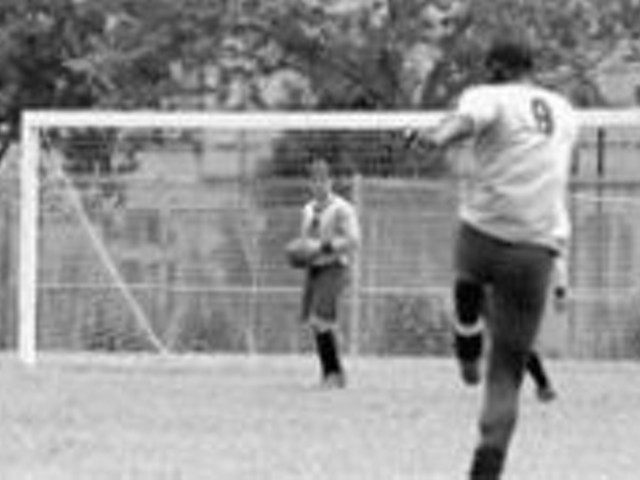To truly understand the co-mingled horror and respect that Rattus norvegicus inspires in the human psyche, try lifting a massive rat carcass in a dustpan sometime. Examine the little hands, the plump two-pound heft of that dirty brown body, the delicately tapered face gently whiskered above a pair of yellowed and broken chisel-like teeth. That little bastard has eluded you for weeks, and now you have him; you've resumed your position at the apex of the food chain, but you still feel something for that small creature who gorged himself on your poison. Poor little guy. And good riddance.
How did the rat come to occupy this place in the margins of our lives and minds? Robert Sullivan spent a full year returning to one alley in New York City, studying the rats who dwelled within. His journal of that span, Rats, is a fascinating collection of notes on the rats' habits and habitat. Sullivan meets exterminators, street people, city workers and biologists; he records their observations and conversations, and in the process he realizes that the Greatest City in the World has been shaped and reshaped by these furry denizens. Sullivan's most shocking discovery? That in the late 1800s, the rise of baseball as a popular pastime in New York supplanted the inhumanly cruel sport of rat fighting. There but for the grace of rats go the Yankees....
Sullivan reads from and discusses Rats at 7 p.m. at Left Bank Books (399 North Euclid Avenue; 314-367-6731 or www.left-bank.com). Joining him for her own reading and discussion is Elizabeth Gaffney, whose novel Metropolis is set in post-Civil War New York, when rat and human were perhaps closer than ever. Both readings are free, and you're practically guaranteed to feel hinky when passing Dumpsters afterward. -- Paul Friswold
Duende Is Near
SAT 4/16
Guitarist Paco Peña has been called "the personification of flamenco." It's a heavy burden, sure, but Peña is more than capable of carrying it. Performing flamenco solo, without a dancer to drive the beat, as Peña does at 8 p.m. at the Ethical Society (9001 Clayton Road, Ladue; 314-567-5566) provides an opportunity to witness the unvarnished truth of Peña's playing. With just six strings and his Andalucian sense of duende (an untranslatable word approximating "the dark spirit of creation, of blood," according to poet Gabriel Garcia Lorca), Peña will overwhelm and inspire you. Tickets are $16 to $18, and if you miss this show, you'll never know what it is you've lost. -- Paul Friswold
Get Your Hair Did
SAT 4/16
What is it about the hairdresser that has most of us spilling our guts after one little snip? Do we relish the undivided attention or the fact that, unlike with the dentist, we can actually answer back with more than a nod? Whatever it is, the phenomenon is best demonstrated at Truvy's Beauty Spot in Steel Magnolias. The Montana Repertory Theatre presents this remarkable play about six Southern belles sharing weddings, funerals and everything in between at 8 p.m. at the Touhill Performing Arts Center on the University of Missouri-St. Louis campus (1 University Drive at Natural Bridge Road; 314-516-4949 or www.touhill.org). Tickets are $18 to $35, which is actually less expensive than getting your hair done in real life. -- Amy Helms
Kitchen Cops
MON 4/18
Edward Conlon is the Anthony Bourdain of the NYPD. No, Conlon doesn't snort coke and eat monkey brains (to our knowledge). But his book, Blue Blood, does give readers the same behind-the-scenes glimpses, literate writing (he's the author of the "Cop Diary" column for The New Yorker) and "sane man in an insane place" humor that Bourdain produced in his Kitchen Confidential. And Bronx housing projects sound only a little less crazy than one of Bourdain's kitchens. Conlon signs copies of Blue Blood at 7 p.m. at the Schlafly branch of the St. Louis Public Library (225 North Euclid Avenue) as the guest of Left Bank Books. Call 314-367-6731 or visit www.left-bank.com for more information. -- Jordan Harper





